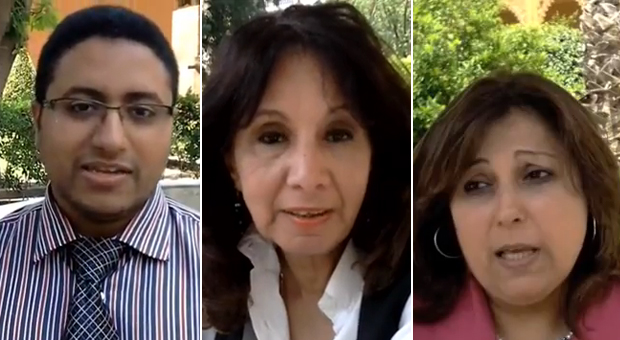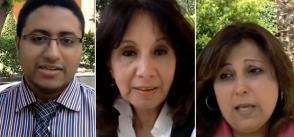
ERAWIDE projects: 3 interviews
On 13 June 2013 a meeting was held in Cairo (Egypt) with the national coordinators of projects ERAWIDE for collecting their potential interest to network and establish synergies with MEDSPRING project. The general aim of this meeting, organized in collaboration with MHESR, was to increase synergies among regional projects, while supporting take-up of project results.
It was a useful occasion for recording three short video-interviews with some of the participants, for presenting their ERAWIDE projects.
"More societal challenges for EU -MED cooperation or Expanding the platform of cooperation between EU and the MPC's".
Prof. Dr. Nagwa Elkhafif, Professor of Clinical and Chemical Pathology, Electron Microscopy Dept., Director of the Training Unit, Theodor Bilharz Research Institute, representative of THEBERA project.
" Reinforcing cooperation Capacity of Egypt"
Dr. Ahmed M. Gamaleldin, SECC, Senior R&D software engineer, representative of RECOCAPE project.
"The THEBERA project objectives and main challenges".
Dr. Nevine Fam, Professor of Clinical Microbiology, Theodor Bilharz Research Institute, Cairo, Task Leader of T3.1 /WP3 in THEBERA Project.
[Interviews by CIHEAM - IAM Bari]







